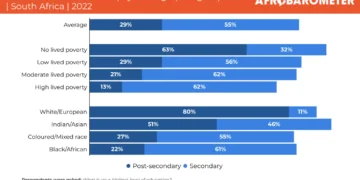‘The mind, once stretched by a new idea, never returns to its original dimensions.’
– Ralph Waldo Emerson –
I am currently in my penultimate year as a student of International Relations (which entails political, social, economic and other forms of interaction on a global scale). In recent times, I have come to the conclusion that attending the institution called school is not just for the lessons in our syllabi and curricula. The essence of school is not (just) to prepare us for the ‘world of work’ It is indeed an agent of socialisation that communicates certain life lessons which are better grasped early.
This may just become a series, who knows?
The first lesson is, ‘Every course has its demands..’
I did not have photochrome glasses for most of my childhood. I struggled with reading from the board (which was either white or black) in class, as well as with tiny fonts in books. It was so bad that I could not draw straight lines easily; it took me about 30 minutes to draw border lines 1 cm from the 4 edges of a drawing paper (throw back to Basic Technology classes). Getting a C in Basic Technology at the qualifying exams for senior secondary school was a narrow escape for me.
I was neither interested in observing (non-)living things nor in cramming formulae. I immediately knew that the sciences were not for me (contrary to popular expectations as well as opinion) and I was not ready to become a student of commerce. Thus, my journey to the Arts/Humanities began. I enjoyed subjects like: Government, English Studies, Literature-in-English Studies and Yoruba that enabled me to read vastly, to write unhindered and to examine ideas in society.
SIMILAR ARTICLES: Life Lessons From Being A Student (PART 2)
Let’s teach kids skills for life
Life as an international student in Canada meant crushing poverty. But it also taught me resilience
If you are familiar with the Science/Arts/Commerce segmentation, you would understand that name-calling was common. While one segment believed that they deserved regard for working the hardest, another segment felt unfairly treated because others had things easier. On arriving at university, I realised that this same misunderstanding was prevalent. Thus, I kept preaching the gospel that no course was super easy and none was necessarily draconian.
It’s okay if you don’t agree; stay with me nonetheless. Some people wish to switch programmes or courses but they do not want to meet the accompanying demands. They think the grass is greener on the ‘other side,’ but they probably have neither gardening experience nor willingness to acquire it.
Each course of study requires a certain amount of skill. Do you have it? Are you ready to cultivate it? Would you rather sit for long hours reading and summarising documents for an assignment than spend that same time in a laboratory? Would you rather make drama presentations than punch numbers into a machine to balance accounts?
The regular line is, ‘Anybody can learn and do anything.’ The flip side is, ‘Not everyone is wired to do everything (well).’
Another crucial lesson is from the word, course. We often mistake a course as something we do for a semester and then get graded for. That is sadly myopic. A course is a long stretch that you are to cover and overcome. That is why there are modules and topics spread over time, learning objectives, assignments with strict instructions as well as ultimatums, group projects (that you would prefer to do alone sometimes), unpredictable lecturers, exams…The essence of the combination is to open up your mind to diversity and to enable you to stretch. Courses teach us endurance, time management, responsibility and resourcefulness.
As time goes on, let’s see how many more lessons we can deduce from school.
Have a beautiful second half of 2023!





































































 EduTimes Africa, a product of Education Times Africa, is a magazine publication that aims to lend its support to close the yawning gap in Africa's educational development.
EduTimes Africa, a product of Education Times Africa, is a magazine publication that aims to lend its support to close the yawning gap in Africa's educational development.

